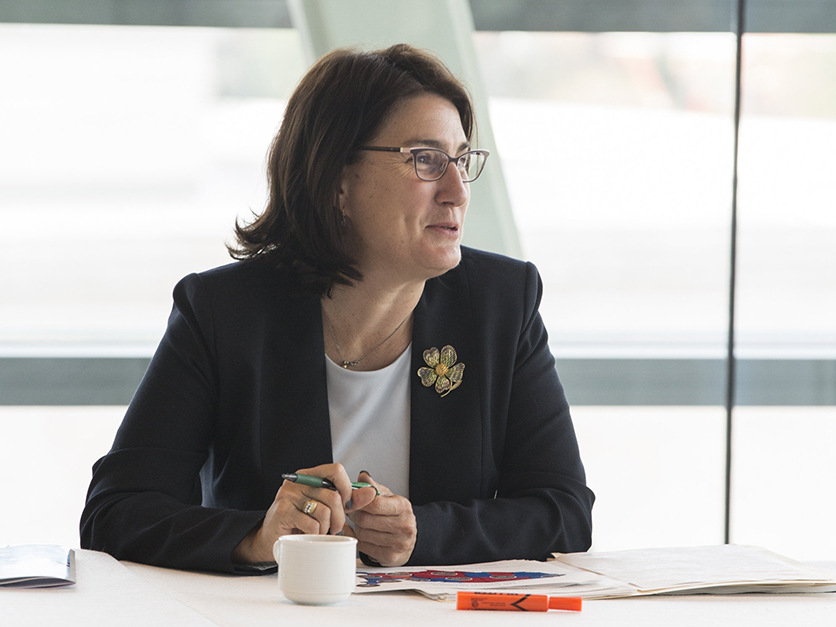More than 200 leaders from organic businesses, farms, and ranches of all sizes from all regions of the country are coming to Washington this week with one goal in mind: Repair the organic public-private partnership and halt the bureaucratic foot-dragging that is stymieing this vibrant industry.
In an era of record low trust in government and corporations, the organic industry is, refreshingly, on the side of consumers and farmers, and working in a transparent way to lobby for good. We want the public to know what we are in the Nation’s Capital to do—that is, get government to move much more quickly to strengthen organic standards, and allow organic to work in bigger and better ways. We have even invited top social influencers to join us and pull back the curtain on our advocacy on Capitol Hill. (Follow us on #organicweekdc to keep informed.)
Organic has nothing to hide.
America’s organic sector is one of the bright spots in the challenged U.S. farm economy. U.S. organic sales have grown from $1 billion in 1990, when the Organic Foods Production Act was signed into law authorizing the U.S. Department of Agriculture’s National Organic Program, to $8.6 billion in 2002 when the USDA Organic seal was introduced. Today we have over 27,000 certified organic operations nationwide serving a $52-plus billion market, whose annual growth rate regularly outpaces that of the total food market.
At first glance, the facts show that the combination of organic initiative and a substantive government program to monitor and guide the sector has worked well. The public-private partnership of the USDA Organic label has for almost 20 years been the gold standard for a regulatory system that participants voluntarily opt into and for which the government creates uniform and robust standards and supports the industry’s priorities.
But look again. The organic sector has come together 20 times in the last 10 years to agree to consensus-based recommendations to strengthen the organic standards. BUT not a single one of these recommendations has made it through the bureaucratic maze to become a final upgraded requirement. This is not a new problem; it is a decades-long problem.
That is why we are asking Congress to step in and to innovate how government works with meaningful voluntary regulations.
The Organic Trade Association is working with Republicans and Democrats to craft legislation to ensure continuous improvement and accountability in organic standards. The voluntary, opt-in organic program is unique, and organic standards and regulations should be allowed to move forward in a way that is different than mandatory regulations.
We want continuous improvement in organic standards to be defined in the law and regulations in order to maintain the value and the trust of the Organic seal in the marketplace, and to allow organic to continue fostering soil health, biodiversity, animal welfare and natural resource conservation.
Millions of American consumers buy organic every day for their families because they know it makes a difference. The USDA Organic seal means the product has been grown and processed without any toxic and synthetic pesticides or fertilizers, without any GMO ingredients, without any antibiotics or synthetic growth hormones, without any artificial flavors, colors or preservatives.
It is often overlooked that organic provides a test lab for the best sustainable practices in agriculture. These practices over time become more broadly adopted, such as the practice of planting cover crops which help repair soil, reduce weeds, hold moisture, or growing crops without chlorpyrifos, or raising livestock without the use of antibiotics, and a host of other beneficial practices. Let’s not hold this back -- let’s embrace this opportunity. We encourage our colleagues in the rest of agriculture to NOT be afraid of strict organic standards.
We need government to not hold back progress. Organic is a transparent, positive, solutions-oriented force. The government needs to get moving regarding its obligations to organic, and help advance the sector so that farmers, consumers, and working landscapes can benefit.
It can be hard to get into organic, and it should be. Whether you are in it for organic’s value-added premiums, to help the environment, or to lighten the chemical load in food production, organic depends on its clear difference. Let’s let organic plow ahead and break new ground. What have we got to lose? Plenty.
Laura Batcha has been CEO and Executive Director of the Organic Trade Association since January of 2014. She has been in involved in organic in a number of roles — from raising organic crops, selling at farmers’ markets and through Community Supported Agriculture (CSA) programs, having her own organic business and working for a multinational organization.
The Organic Trade Association is the leading membership-based business association for organic agriculture and products in North America. It represents over 9,500 organic businesses across 50 state, including growers, shippers, processors, certifiers, farmers' associations, distributors, importers, exporters, consultants, retailers and others.

